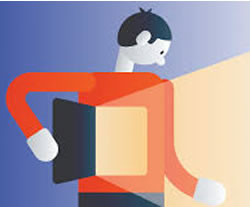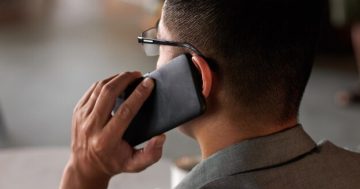Bruce Kasanoff* says that in a world where we are increasingly dependent on data to make critical decisions, intuition still has a role to play.
 The basic idea in one minute: Even in a data-driven society, intuition has a critical role.
The basic idea in one minute: Even in a data-driven society, intuition has a critical role.
Data are neither impartial nor infallible; they are often the result of judgments and biases held by the gatherers of that data.
In contrast, intuition seems to be a by-product of the sum of all your experiences and abilities.
While intuition alone is not enough to guide 100 per cent of your actions, there are times when it can and should play a crucial role in determining your next move.
In some cases, after you go through a disciplined process to make a logical decision, intuition appears as a wiser voice to say: “Nah, I don’t think so.”
Intuition, argues Gerd Gigerenzer, a Director at the Max Planck Institute for Human Development, is less about suddenly ‘knowing’ the right answer.
It is more about instinctively understanding what information is unimportant and can thus be discarded.
Professor Gigerenzer, author of the book Gut Feelings: The Intelligence of the Unconscious, says that he is both intuitive and rational.
“In my scientific work, I have hunches. I can’t explain always why I think a certain path is the right way, but I need to trust it and go ahead,” he says.
“I also have the ability to check these hunches and find out what they are about. That’s the science part.
“Now, in private life, I rely on instinct. For instance, when I first met my wife, I didn’t do computations. Nor did she.”
I’m telling you this because one of my readers, Joy Boleda posed a question that stopped me in my tracks:
What about intuition? It has never been titled as a form of intelligence, but would you think that someone who has great intuition in things has more intelligence?
My gut instinct is to say yes, especially when we are talking about people who are already intellectually curious; rigorous in their pursuit of knowledge, and willing to challenge their own assumptions
Let me put this a bit simpler.
If all you do is sit in a chair and trust your intuition, you are not exercising much intelligence.
However, if you take a deep dive into a subject and study numerous possibilities, you are exercising intelligence when your gut instinct tells you what is — and isn’t — important.
In some respects, intuition could be thought of as a clear understanding of collective intelligence.
For example, most websites are today organised in an intuitive way, which means they are easy for most people to understand and navigate.
This approach evolved after many years of chaos online, as a common wisdom emerged over what information was superfluous and what was essential.
I’m a believer in the power of disciplined intuition.
Do your legwork, use your brain, share logical arguments and I’ll trust and respect your intuitive powers.
If you merely sit in your hammock and ask me to trust your intuition, I’ll quickly be out the door without saying goodbye.
I say this from personal experience – the more research I do, the better my intuition works.
Albert Einstein has been widely quoted as saying: “The intuitive mind is a sacred gift and the rational mind is a faithful servant.
“We have created a society that honours the servant and has forgotten the gift.”
Sometimes, a corporate mandate or group-think, or your desire to produce a certain outcome can cause your rational mind to go in the wrong direction.
At times like these, it is intuition that holds the power to save you.
That ‘bad feeling’ gnawing away at you is your intuition telling you that no matter how badly you might wish to talk yourself into this direction, it is the wrong way.
Smart people listen to those feelings.
The smartest people among us — the ones who make great intellectual leaps forward — cannot do this without harnessing the power of intuition.
*Bruce Kasanoff is an author and ghostwriter for entrepreneurs.
This article previously appeared on Forbes.











